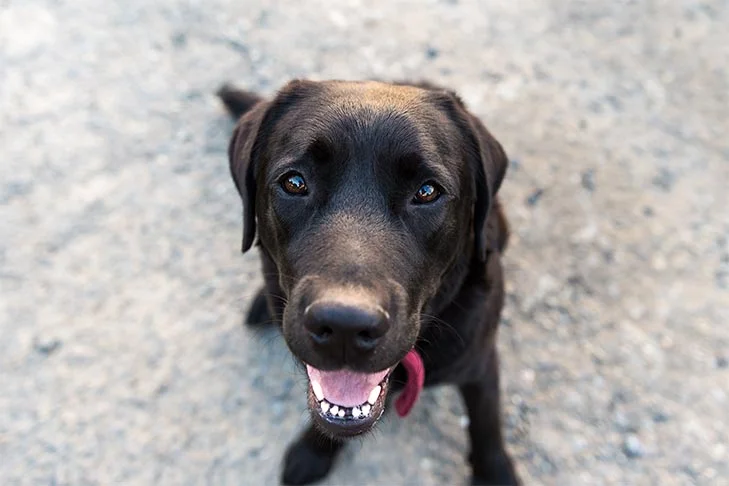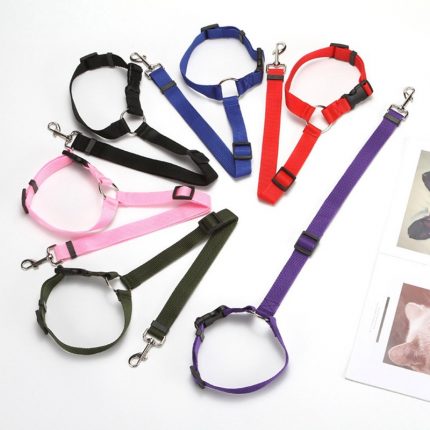As dog owners, we often find ourselves trying to establish a deep connection with our furry companions. We cherish those moments of bonding and interaction, where we can communicate and understand each other. However, there may be times when we notice that our beloved dogs intentionally avoid making eye contact with us. So what is the reason why does my dog avoid eye contact with me?
In this article, we delve into the fascinating world of canine behavior to uncover the reasons behind why dogs may avoid direct eye contact. While every dog is unique and may have individual preferences, there are some common explanations that can help shed light on this intriguing behavior.
 Understanding the Reasons Behind why does my dog avoid eye contact with me
Understanding the Reasons Behind why does my dog avoid eye contact with me
Building a strong bond with your dog requires understanding their behavior and communication patterns. One common behavior that dog owners may observe is their furry companion avoiding direct eye contact. Let’s explore some of the key reasons why does my dog avoid eye contact with me:
1. Canine Communication and Body Language
Dogs primarily communicate through body language, using a combination of postures, facial expressions, and vocalizations. While humans rely heavily on eye contact for communication, dogs have a different perspective. Direct eye contact, especially when prolonged or intense, can be perceived as a threat or challenge in the canine world.
By avoiding eye contact, dogs are attempting to maintain social harmony and prevent potential conflicts. It’s important to remember that dogs have their own unique way of communicating, and understanding and respecting their boundaries is crucial for a healthy relationship.
2. Evolutionary Instincts
The avoidance of eye contact in dogs can be traced back to their evolutionary history. In the wild, direct eye contact is often associated with aggression or dominance. Dogs have inherited this instinctual behavior from their ancestors as a means of survival.
By avoiding eye contact, dogs are instinctively trying to prevent confrontations or perceived threats. This behavior is deeply ingrained in their genetic makeup and can still manifest itself in domesticated dogs.
3. Past Experiences and Trauma
A dog’s past experiences can greatly influence their behavior towards eye contact. Dogs that have had negative encounters or traumatic experiences may associate eye contact with fear or discomfort. As a result, they may actively avoid eye contact as a coping mechanism to mitigate anxiety or stress.
It’s important to approach dogs with empathy and patience, especially if they have a history of trauma. Building trust and providing a safe environment can help them gradually overcome their aversion to eye contact.
4. Personality and Temperament
Just like humans, dogs have individual personalities and temperaments. Some dogs may naturally be more reserved or shy, leading them to avoid direct eye contact as a means of self-preservation or maintaining personal boundaries.
Understanding and respecting your dog’s unique personality traits is crucial for fostering a healthy relationship. By allowing them to set their comfort level and not forcing eye contact, you can create an environment where they feel safe and secure.
Practical Recommendations for Building a Stronger Connection with Your Dog
Now that we understand why dogs may avoid eye contact, let’s explore some practical recommendations to help foster a deeper connection with your furry companion and solve the issue of why does my dog avoid eye contact with me:
1. Respect Your Dog’s Boundaries
Every dog has their own comfort level when it comes to eye contact. It’s important to respect their boundaries and not force direct eye contact if they seem uncomfortable. Instead, focus on building trust through positive reinforcement and creating a safe and nurturing environment.
2. Use Positive Reinforcement Techniques
Reward-based training methods can be highly effective in encouraging desired behaviors. When your dog makes brief eye contact with you, praise and reward them with treats or affection. This positive association will help them gradually become more comfortable with eye contact over time.
3. Gradually Increase Exposure to Eye Contact
If your dog is particularly averse to eye contact, start by gradually increasing their exposure to it. Begin with short periods of eye contact and gradually extend the duration as they become more comfortable. Pair the eye contact with positive experiences, such as playtime or treats, to create a positive association.
4. Seek Professional Help if Needed
If your dog’s avoidance of eye contact is causing significant distress or affecting their overall well-being, it may be beneficial to seek guidance from a professional dog trainer or animal behaviorist. They can assess your dog’s behavior, provide tailored advice, and help address any underlying issues.
5. Focus on Other Forms of Communication
Remember that eye contact is just one aspect of communication with your dog. Dogs rely on a variety of cues, including body language, vocalizations, and scent. Pay attention to these other forms of communication and learn to understand and respond to them effectively.
6. Build Trust and Confidence
Building trust and confidence is crucial for a strong bond with your dog. Engage in positive and consistent training, provide mental and physical stimulation, and create a loving and supportive environment. As your dog’s trust and confidence grow, they may become more comfortable with eye contact.
7. Be Patient and Understanding
Each dog is unique, and it may take time for them to feel comfortable with eye contact. Be patient, understanding, and avoid getting frustrated. Celebrate small victories and progress, and remember that a loving and trusting relationship is built on mutual respect and understanding.
By implementing these practical recommendations for why does my dog avoid eye contact with me, you can create a nurturing environment that encourages positive interactions and strengthens the bond between you and your dog. Remember, building a connection takes time and effort, but the rewards are immeasurable.
 Why does my dog avoid eye contact with me – Conclusion
Why does my dog avoid eye contact with me – Conclusion
why does my dog avoid eye contact with me, it’s important to remember that this behavior is rooted in their natural instincts, past experiences, and individual personality traits. By understanding the reasons behind their avoidance, you can build a stronger bond with your furry friend.
Our featured products:
Respecting their boundaries, providing a safe environment, and using positive reinforcement techniques can help your dog gradually become more comfortable with eye contact. Remember, every dog is unique, and patience and understanding are key in nurturing a loving and trusting relationship.















 Understanding the Reasons Behind why does my dog avoid eye contact with me
Understanding the Reasons Behind why does my dog avoid eye contact with me Why does my dog avoid eye contact with me – Conclusion
Why does my dog avoid eye contact with me – Conclusion